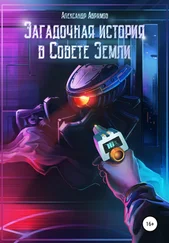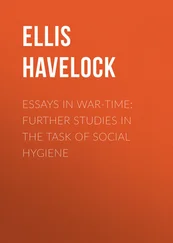Александр Абрамов - The Time Scale
Здесь есть возможность читать онлайн «Александр Абрамов - The Time Scale» весь текст электронной книги совершенно бесплатно (целиком полную версию без сокращений). В некоторых случаях можно слушать аудио, скачать через торрент в формате fb2 и присутствует краткое содержание. Жанр: Фантастика и фэнтези, на английском языке. Описание произведения, (предисловие) а так же отзывы посетителей доступны на портале библиотеки ЛибКат.
- Название:The Time Scale
- Автор:
- Жанр:
- Год:неизвестен
- ISBN:нет данных
- Рейтинг книги:4 / 5. Голосов: 1
-
Избранное:Добавить в избранное
- Отзывы:
-
Ваша оценка:
- 80
- 1
- 2
- 3
- 4
- 5
The Time Scale: краткое содержание, описание и аннотация
Предлагаем к чтению аннотацию, описание, краткое содержание или предисловие (зависит от того, что написал сам автор книги «The Time Scale»). Если вы не нашли необходимую информацию о книге — напишите в комментариях, мы постараемся отыскать её.
The Time Scale — читать онлайн бесплатно полную книгу (весь текст) целиком
Ниже представлен текст книги, разбитый по страницам. Система сохранения места последней прочитанной страницы, позволяет с удобством читать онлайн бесплатно книгу «The Time Scale», без необходимости каждый раз заново искать на чём Вы остановились. Поставьте закладку, и сможете в любой момент перейти на страницу, на которой закончили чтение.
Интервал:
Закладка:
‘He lived for the fatherland,’ I said slyly.
‘He died for honour,’ returned the other like an echo, and he added with military readiness; ‘What are your orders, sir?’
‘Is that Janek’s car?’ I asked, glancing round at the door.
‘It’s Woyekh’s,’ he replied.
‘Who did they bring?’
‘The girl.’
‘Elzbeta?’ I said unsteadily.
‘That’s right. He went to tell Copecki. Our telephone’s out of order.’
‘He’ll be back soon?’
‘Yes – the telephone box is only half a block away.’
‘Where’s the girl?’
He pointed a finger at a door in the corner – ‘Perhaps I can be of some assistance.’
‘No need.’
I went into the room which evidently served as an office and store. In among boxes of tins and beer, the massive refrigerator and shelves of bottles and siphons lay Elzbeta, wrapped in a strip of carpet. Another coincidence – at the time I thought it was Ziga they were carrying out to the car and now it was Elzbeta who lay before me wrapped in the same sort of bundle. There was not a drop of blood in her almost wax-like face, and no trace of colour on her lips or eyes. She bore more resemblance to a girl from some convent school than to the imperious beauty who – I no longer knew how many minutes or hours ago – had saved my life.
I bent over her and her lowered lids didn’t even stir – she was in a deep faint. There was no doubt or hesitation in my mind, only one thing worried me – would I have time before Woyekh returned? The carpet cocoon jumped slightly as I gathered it into my arms. My muscles have come in handy, Mr Leszczycki – you were right, they did come in handy after all.
Pushing the door open with my foot I almost knocked the barman off his feet – he had evidently been looking through the keyhole or the crack of the door.
‘Be more careful next time, barman. You run the risk of losing your eyes that way,’ I laughed, as I passed by him with the girl in my arms.
He wasn’t put out, just became thoughtful for a moment. It was obvious that the situation itself and my tone had shaken some decisions of his. ‘Can I help, sir?’ he asked.
‘Stay where you are,’ I said sharply. ‘I’ll take the girl to the car and wait for Woyekh there. No questions.’
He nodded understandingly, opened the door to the street and I had the impression that he took up a position behind the Balthazaar-like inscription on the window, assuming that I would not notice this manoeuvre from the street, but I didn’t even bother to turn around. I lay the still unconscious Elzbeta on the front seat of the car. That latest model Plymouth, even if obtrusive, battered and repainted, was comfortable inside and very roomy. The girl proved so tiny and thin that she could lie across it with her knees only slightly bent. I then calmly walked round the car, and was opening the door on the driver’s side when suddenly someone’s hand grabbed me hard by the shoulder. I looked round – Woyekh – in the same drenched fedora and with the same down-twisted mouth.
‘The gentleman’s taken a liking to the new sedan?’ he grimaced. ‘Just hang on a minute till you write out the cheque.’
‘Look inside you ass,’ I said.
He bent down to look and then straightened. In that second I remembered my last three rounds at the Warsaw competition some years ago. My opponent had been Prohar, a fourth-year student who trained under Walaek and like him was agile and accurate but with a weak punch. I didn’t have any special speed or accuracy, the one thing I depended on was my punch from low on the left, a classy knock-out punch. Prohar had a clear win on points, and I was still stalking him with that punch, waiting for him to drop his guard. He never did. I lost and gave up boxing, like the Russian champion Shatkov after his defeat in Rome. At home they talked almost triumphantly of how he had become some kind of head of a university, had even had his doctorate accepted, while the boxing gloves still hung up in his study. I hung mine up in my. room too, as a souvenir, although I soon forgot everything connected with them except for one thing, my star punch, undelivered when I most depended on it. I remembered it like a conditioned reflex and when Woyekh straightened up leaving himself wide open like any beginner at his first training bout would do, I hit him with my left from low down, aiming at his totally unprotected jaw, I put the entire strength of my muscles and all the weight of my body behind the punch, everything I had. Already helplessly unconscious, Woyekh’s whole body turned over and slumped on to the street. ‘Glass chin,’ our trainer would have said of him.
I didn’t so much get into the car as dive in. I sat on the very edge of the seat and leapt away, bending as low as possible over the steering wheel and only just in time! Something splintered above my head leaving two round holes in the dull glass of the side window and the windshield. The second bullet scraped the top without even penetrating the body. I escaped from the third with my foot to the floorboards, overtaking a truck loaded with barrels. The gunman must have been the barman, not Woyekh, who would certainly not yet have recovered consciousness.
Driving in such circumstances was difficult and awkward. I kept slipping off the seat and the dark street also confused me: I didn’t know where it led, and so I stopped. Putting Elzbeta’s head on my knee, I turned into a more well-Iit, busier street trying to work out in my head how to get back to the hotel or at least to that crossing where I had stood with Leszczycki, since Elzbeta’s flat was opposite. The girl hadn’t stirred or opened her eyes; when I had lifted her only her eyelids had fluttered slightly. I had the feeling that she was conscious, had been for a long time and was only not opening her eyes because she wanted to find out what had happened and why she was being driven away again.
Then I began talking. Staring into the dim confusion of rain, rain-blackened asphalt and streetlamps cut by rain, I talked and talked, becoming breathless and confused, as if I were delirious.
‘I’m a friend, Elzbeta, your closest friend now, although you don’t even know who I am or where I come from. But you saved my life today, in quite another time, it’s true, you won’t even remember it. But you must remember Mickiewicz’s verses and love them. It was your book Ziga mutilated so sacrilegiously. I’ll recall just two lines to you, the beginning of a sonnet, do you remember? “Travelling life’s road, each with our own destiny. We met, you and I, like two boats at sea.” Reread them if they’ve survived. I have the book and the letters are still in it, where Ziga hid them today – was it really today? He gave me a medal, I’ve already told you about that. I want to give him back the volume of Mickiewicz.’
She opened her eyes and showed no surprise at seeing an unfamiliar face before her. She said quietly and sadly: ‘They’ve killed Ziga. But they didn’t find the letters. He wanted to take them to our embassy. Only is it really ours?’ she added doubtfully.
‘It’s ours, Elzbeta! Ours! Our country’s. You’ll take them there yourself now and I’ll come with you. Then you’ll go home to Warsaw,’ I went on, still in my feverish delirium. ‘Can there be anywhere more beautiful than Warsaw?’
‘I don’t remember. I was a little girl, very, very small,’ she said sadly. ‘But what’s left of Warsaw? Stones.’
‘It’s been built again Elzbeta. You’ve just been deceived, as all of you йmigrйs are deceived. The old town is just as it was…’
I was just going to tell her how this wonderful corner of old Warsaw had been resurrected, but in that second we drove at full speed into blackness where Elzbeta, the town and I, were no longer.
Читать дальшеИнтервал:
Закладка:
Похожие книги на «The Time Scale»
Представляем Вашему вниманию похожие книги на «The Time Scale» списком для выбора. Мы отобрали схожую по названию и смыслу литературу в надежде предоставить читателям больше вариантов отыскать новые, интересные, ещё непрочитанные произведения.
Обсуждение, отзывы о книге «The Time Scale» и просто собственные мнения читателей. Оставьте ваши комментарии, напишите, что Вы думаете о произведении, его смысле или главных героях. Укажите что конкретно понравилось, а что нет, и почему Вы так считаете.


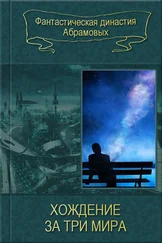
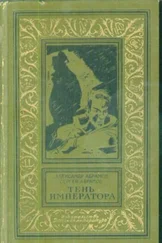
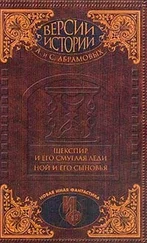
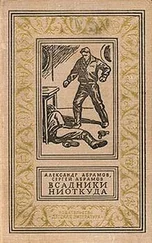
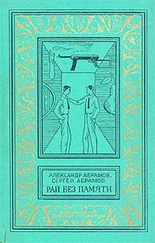
![Александр Абрамов - Юный техник [35 самодельных приборов и моделей для школы, пионерского отряда и дома по оптике, фото, радио, электротехнике и паротехнике.]](/books/416151/aleksandr-abramov-yunyj-tehnik-35-samodelnyh-prib-thumb.webp)
